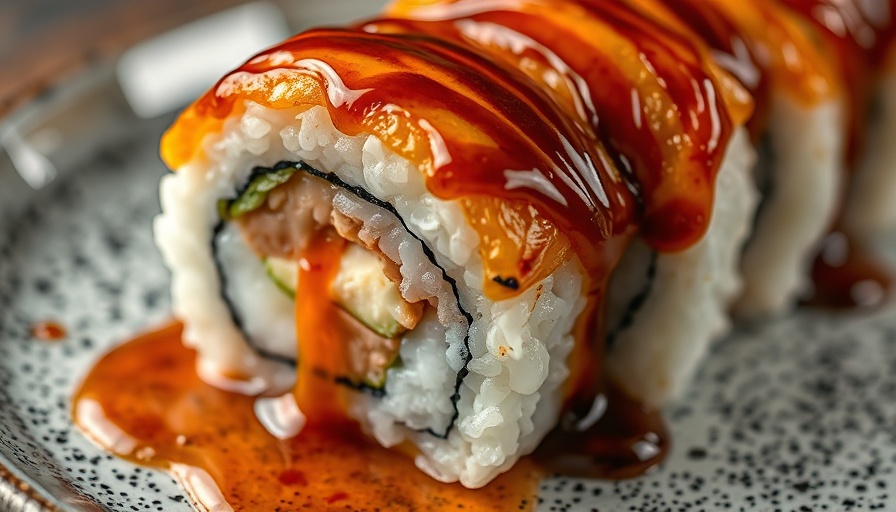
How Sushi Became a Symbol of Normalcy for Ukrainian Troops
As the war in Ukraine rages on, one unexpected food trend emerges amid the chaos: sushi. What began as a culinary curiosity has evolved into a beloved staple for troops seeking both nourishment and a taste of home. Reports indicate that as Ukrainian forces navigate their challenging environment, sushi has settled into a unique role within the soldiers' diet, often accompanied by a warm sense of community.
The Rise of Sushi in Ukraine: From Old Traditions to New Favorites
Sushi's introduction to Ukraine can be traced back to the early years of independence from the Soviet Union. As Yaroslav Druziuk, a cultural commentator, points out, sushi was one of the first foreign dishes to capture the curiosity of Ukrainians. It represented a fresh departure from their traditional meals while symbolizing a desire to connect with global cuisine. Today, sushi is not just about food; it stands for a sense of progress and identity, an enjoyable while distancing itself from the culinary limitations of the past.
Unexpected Adaptations: A Ukrainian Twist on Sushi
While traditional in form, the sushi indulged by Ukrainians often features unique local adaptations. Cream cheese—a common ingredient in many Ukrainian sushi rolls—was integrated into dishes, making an American influence felt. The Philadelphia roll has become an overwhelming favorite, showcasing how Ukrainian palates have embraced and transformed this Japanese delicacy. In some cases, chefs have ingeniously created sushi combinations using ingredients reminiscent of beloved Ukrainian foods, such as herring and mashed potatoes, offering a delectable fusion of flavors.
Popular Culture Amidst Conflict: Eating Sushi as an Emotional Anchor
For many soldiers fighting at the front lines, enjoying sushi has become a comforting ritual. As soldier Blade recounts his own cravings, it highlights how food acts as a unifier and merciful break during intense periods of conflict. Restaurants like Sushiya, which have become beloved local chains, allow troops and civilians alike to step away from the grim realities of war, gathering together over platters of sushi—experience that brightens their days and strengthens bonds.
Economics of Sushi: Resilience Amid Battle
Despite challenges, such as difficulty sourcing ingredients due to war and blockades, Ukraine's sushi restaurants continue to thrive, providing a significant boost to the economy. Restaurant operators have faced significant hurdles to ensure continuous operation. When power outages and missile strikes affected supply chains, many found innovative solutions to keep operations running. The ability to adapt and maintain demand for sushi stands as a testament to the resilience of both the culinary community and the nation as a whole.
The Future of Sushi in Ukraine: Beyond the War
As the world looks ahead, the role of foods like sushi in Ukraine signifies not just culinary adaptation but also hope for a peaceful and prosperous future. With increasing confidence in their nation’s stability, the ongoing popularity of sushi promises to grow, representing a unified celebration of culture and community that transcends war. For those navigating the complexities of culture amid global unrest, savoring a familiar dish like sushi can serve as both an emotional lifeline and a joyful celebration of resilience.
The Importance of Embracing New Culinary Experiences
Sushi’s journey in Ukraine reflects broader themes of cultural adaptation and resilience. For digital nomads and food enthusiasts alike, recognizing how food shapes identities can foster meaningful connections and inspire a greater understanding of diverse experiences. For travelers looking to experience authentic flavors, exploring local adaptations of international cuisine can reveal much about a region’s history and cultural evolution.
So why not explore the delightful sushi offerings from Ukraine on your next culinary journey? Every bite tells a story of a country adapting, transforming, and striving for normalcy amidst chaos.
 Add Row
Add Row  Add
Add 




Write A Comment